Polar Grit X2 Pro hands-on — 7 things that surprise me about this new rugged smartwatch
The Grit X2 Pro is an adventure-ready tank
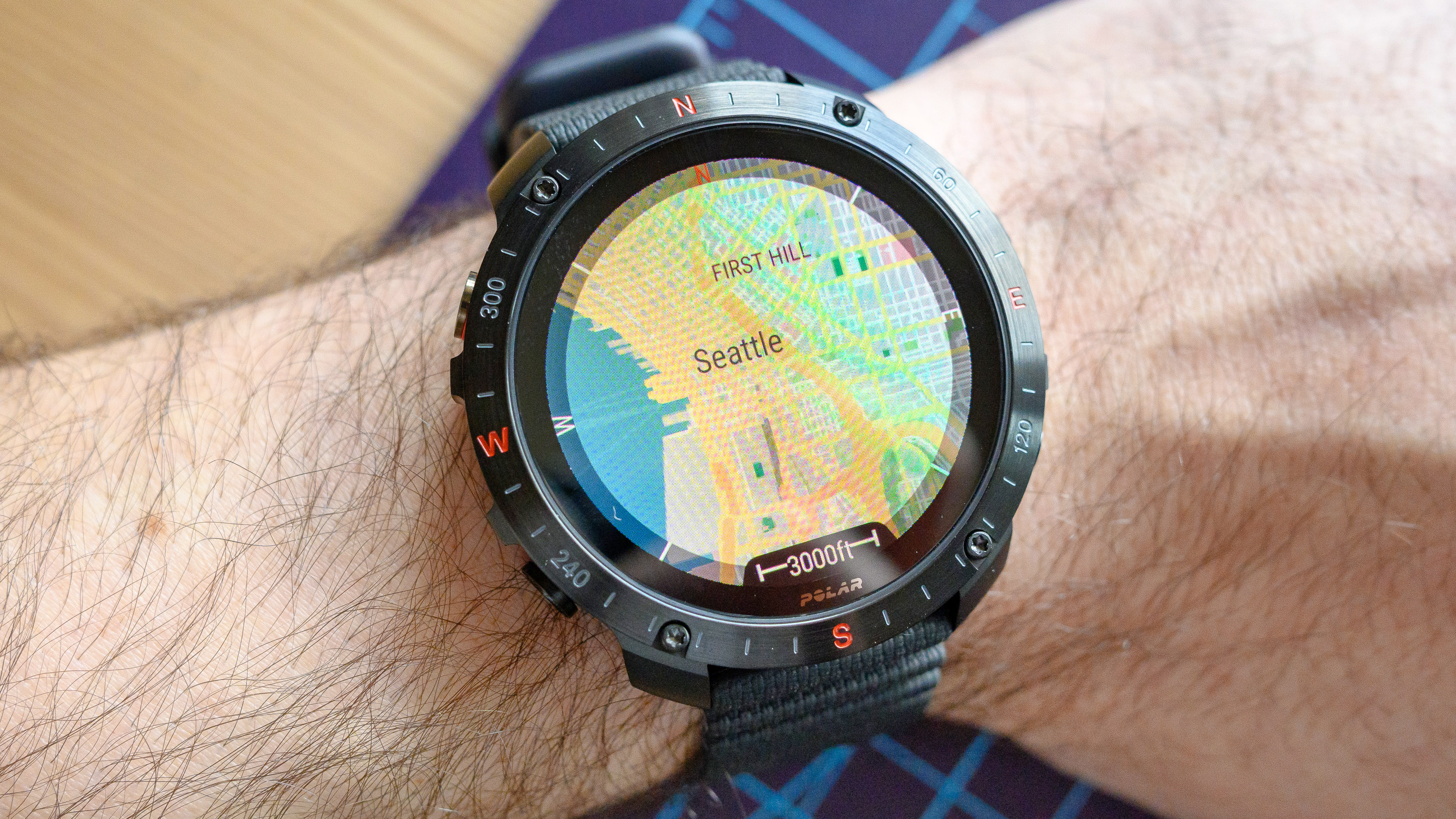
I'm a sucker for tough-built, adventure-ready smartwatches. So when Polar unveiled the new Polar Grit X2 Pro earlier this year, I couldn't wait to get my hands on it.
Built to compete directly with the much-beloved Garmin Epix Pro series and top-of-class Apple Watch Ultra, the Grit X2 Pro has its work cut out for it. Fortunately, the device borrows most of its fitness and health monitoring technology from its well-regarded flagship sibling, the Polar Vantage V3, which I also reviewed earlier this year.
Having just spent a full 24 hours with the new Grit X2 Pro strapped to my wrist — a period that included working out, running errands, walking the dog, sleeping, showering and dutifully writing articles for Tom's Guide — these are the seven things that stand out to me the most.
1. It's a big boy
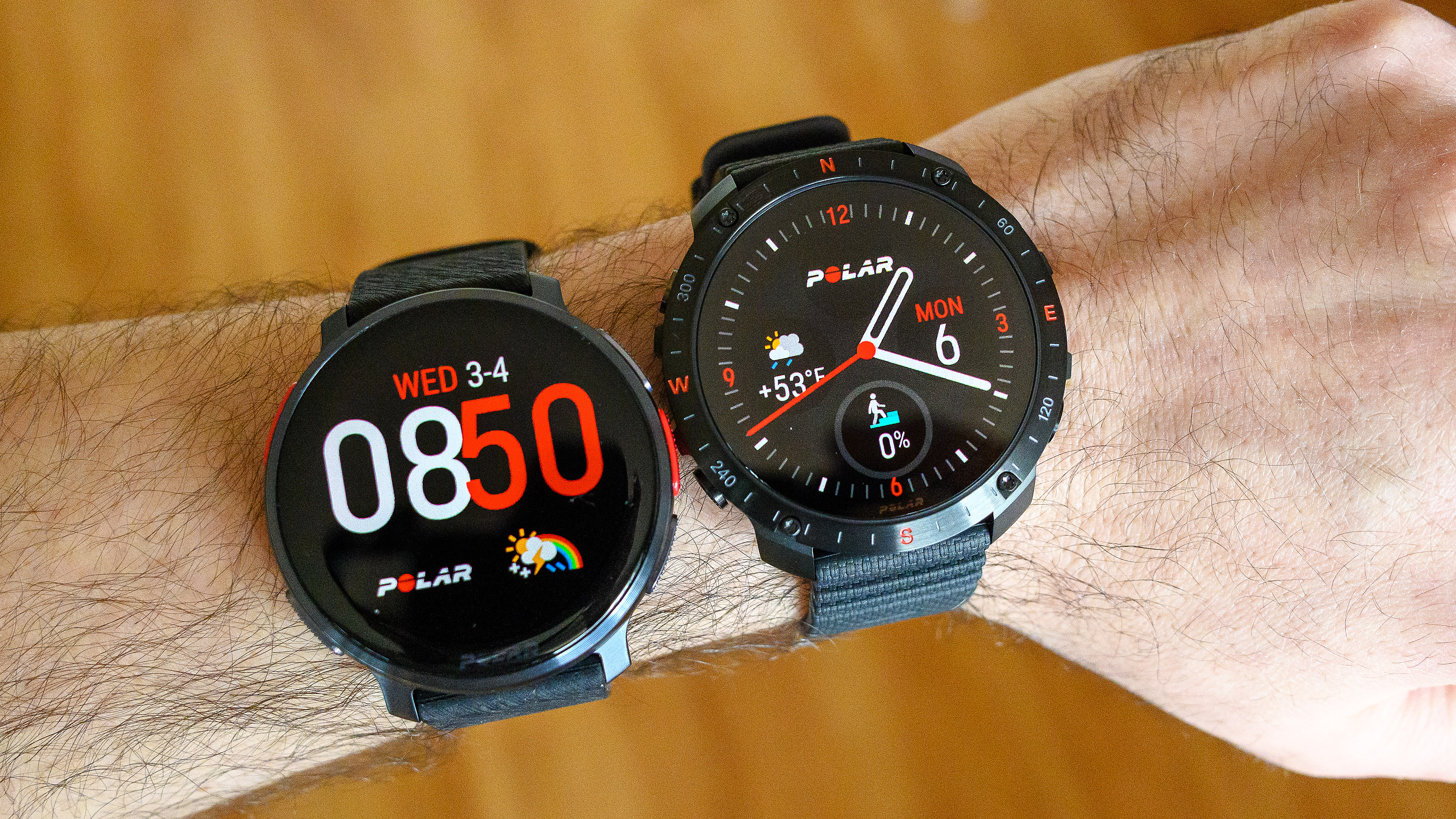
The Grit X2 Pro sports the same lovely 1.39-inch AMOLED touch-sensitive screen as its sibling, but it has larger dimensions thanks to the inclusion of a stainless steel compass-style bezel. (More on that below.) This gives the X2 Pro a total diameter of roughly 49mm, which is pretty hefty. The V3, also a large watch, is 47mm in diameter.
With standard mechanical watches, I tend to prefer 38mm faces, while 42 to 43mm seems to be my sweet spot for smartwatches. So yeah, the Grit X2 feels a bit oversized on my 6.5-inch wrist. However, thanks to a reasonable thickness of just over 13mm — roughly the same as the V3 — it doesn't feel/sit too tall (a real pet peeve).
The X2 Pro is on the heavy side, though: 79 grams compared to the 57-gram Polar V3. That's heavier than even the Apple Watch Ultra (61 grams) and the largest Garmin Epix Pro (79 grams).
Sign up to get the BEST of Tom's Guide direct to your inbox.
Get instant access to breaking news, the hottest reviews, great deals and helpful tips.
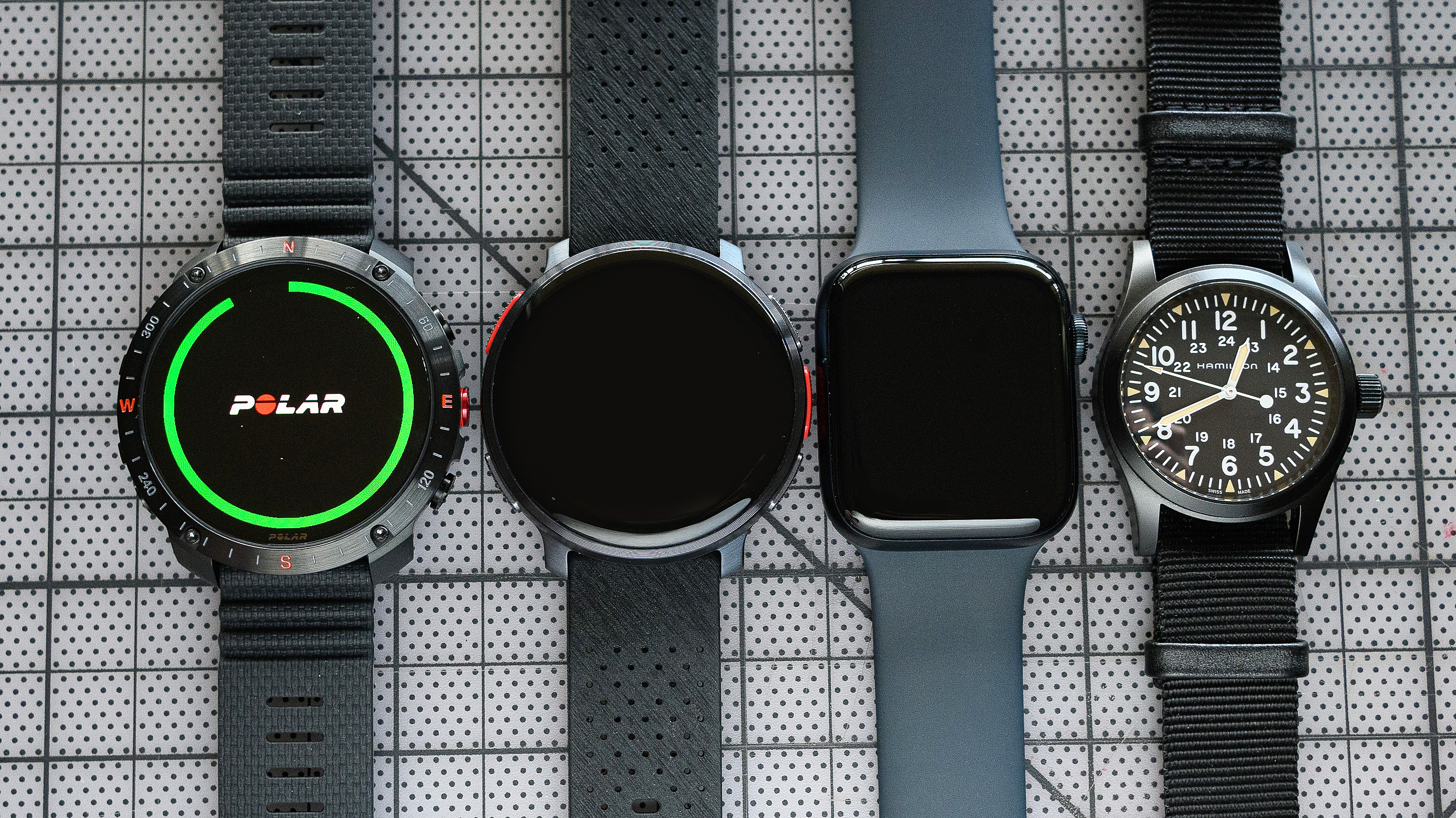
2. The bezel compass is actually useful
I dislike when product manufacturers include design elements for purely aesthetic reasons, especially when they add noticeable bulk to a device. Fortunately, the built-in stainless steel compass bezel on the Grit X2 Pro serves the purpose of both protecting the watch face and case, along with functioning as an actual compass when using the GPS map view.
I also dig it as a nerdy watch guy: Compass bezels — and the inclusion of compasses on watches more generally — have deep horology roots. And though the Grit X2 Pro doesn't look quite as sleek as a Hamilton Khaki Field Expedition or Seiko Prospex Alpinist — two modern watches that lean into history beautifully — the overall design has a subtle, rugged coolness to it.
3. Water resistance is double the Polar V3
Adventure-oriented fitness smartwatches should be rated for more than just casual swimming.
However, devices like the Apple Watch Series 9, Fitbit Charge 6 and even Polar V3 are rated for just 50 meters of water resistance. While that may seem solid enough, it translates to less than an hour of surface swimming.
When the Grit X2 Pro launched, one of the first specs I rushed to check out was water resistance. Thankfully, Polar upped it on this new device to a solid 100 meters of protection. This puts it in line with the Apple Watch Ultra and Garmin Epix Pro, though still notably behind the G-Shock Move DWH5600, which is good for 200 meters.
What does 100 meters of water resistance translate to? Long distance swimming, water skiing, snorkeling and even shallow scuba diving.
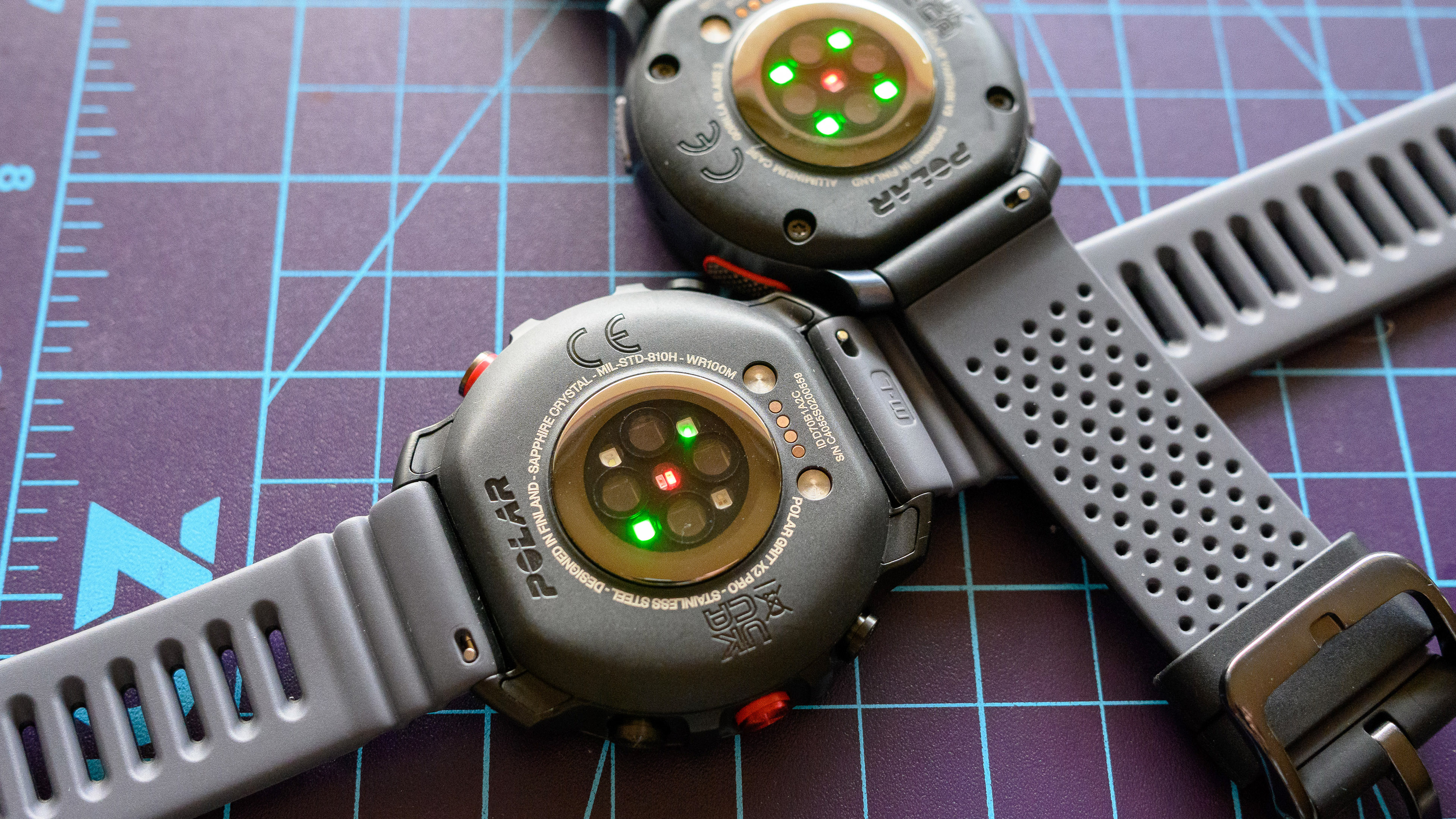
4. It's built like a tank
According to Polar, the Grit X2 Pro is built to military 810H standards, which means that it's cleared by various state defense departments for use in combat — pretty cool. Moreover, of all the smartwatches and fitness trackers currently sitting in my drawer (a total of 12 if you're curious), the Grit X2 Pro is easily one of the toughest-built, second to only the G-Shock Move, which is lighter and covered in a protective rubber skin.
Compared to the V3, the Grit's thicker bezel offers greater screen protection, especially along the side of the display. The strap lugs are thicker than on the V3 and the buttons around the case have little bumpers to protect them, again, unlike on the V3. There are also no visible screws on the bottom of the device, only around the bezel.
5. Fast and accurate GPS
Having tested countless GPS-enabled fitness trackers, many good, some bad, I'm always pleasantly surprised when things connect quickly, especially from within my urban apartment. And this was the case with the Grit X2 Pro.
Though I suspected the Grit would shine in GPS accuracy and connectivity speed given my positive experiences with the V3 (they share the same tech), small design decisions can have major implications on GPS reliability. Fortunately, the Grit's beefier build and greater use of stainless steel didn't cause any connectivity issues, as far as I can tell.
I've only had the chance to track one extremely meandering two-hour walk around my neighborhood but reflecting on the end-of-workout route map, it's pinpoint accurate.
6. Setup takes a while but is straightforward
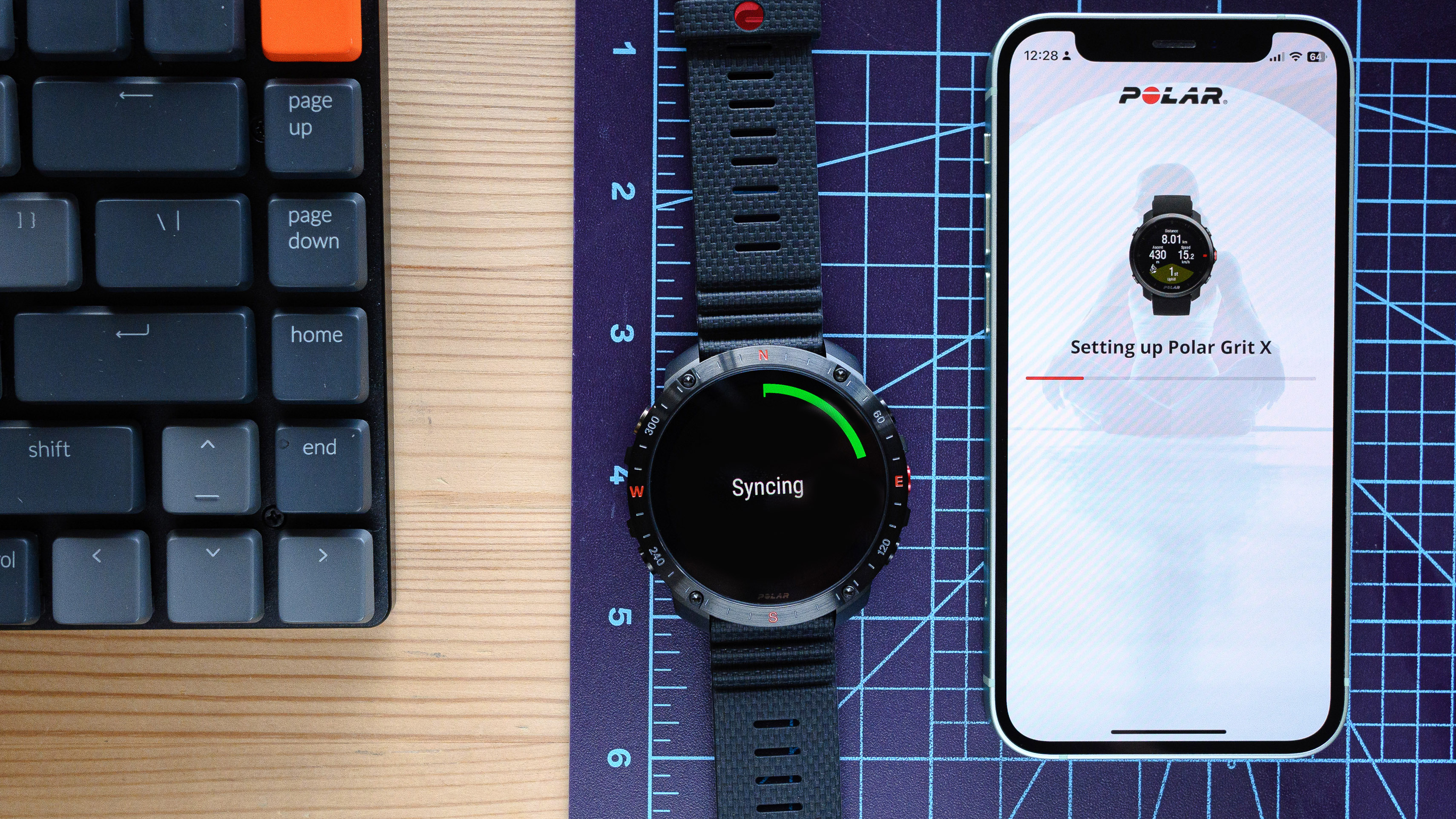
Setting up new tech is often a master class in patience and the Polar Grit X2 Pro was no exception. Though the process took just over 45 minutes — between pairing, updating, syncing, etc. — it was, at the very least, extremely straightforward.
Better yet, having previously tested the V3, I was able to sync up all my old workout data and watch preferences to the new device with a tap of my finger. Once the setup was complete, the watch was truly ready to roll — no, "just one more update!" messages to contend with.
7. Solid battery life
Polar says the Grit X2 Pro is good for 10 days in standard smartwatch mode, up to 140 hours in Eco Training mode — with somewhat reduced tracking capability — and 43 hours when using the full-blown tracking mode.
I unplugged the device from power upon completing the initial setup and haven't charged it since then (roughly a full 24 hours). During that time, the Grit joined me for each and every exciting task I completed, the most notable being my GPS-tracked walk and a solid seven hours of sleep — right now, battery life is sitting pretty at 90%. Not too shabby.
More from Tom's Guide

Dan Bracaglia is the Tom’s Guide editorial lead for all things smartwatches, fitness trackers and outdoor gear. With 15 years of experience as a consumer technology journalist testing everything from Oura Rings to instant cameras, Dan is deeply passionate about helping readers save money and make informed purchasing decisions. In the past year alone, Dan has assessed major product releases from the likes of Apple, Garmin, Google, Samsung, Polar and many others.
An avid outdoor adventurer, Dan is based in the U.S. Pacific Northwest where he takes advantage of the beautiful surroundings every chance he gets. A lover of kayaking, hiking, swimming, biking, snowboarding and exploring, he also makes every effort to combine his day job with his passions. When not assessing the sleep tracking and heart rate accuracy of the latest tach gadgets, you can find him photographing Seattle’s vibrant underground music community.
